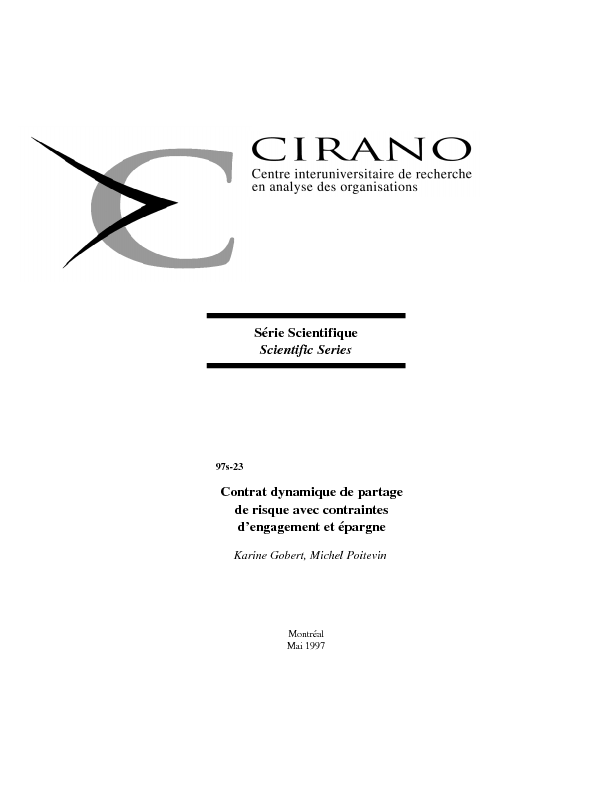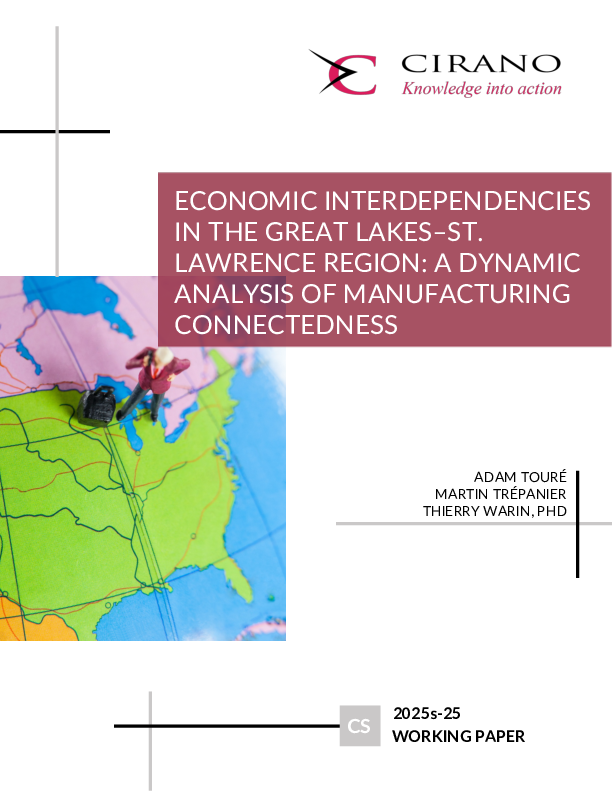Contrat dynamique de partage de risque avec contraintes d'engagement et épargne
This paper studies the effect of combining different insurance schemes on the efficiency of consumption smoothing in an environment without commitment. A savings account is introduced into the self-enforcing risk-sharing model of Thomas and Worrall (1988). The risk averse agent's savings play the role of a collateral, thereby improving consumption smoothing. Furthermore, the optimal use of the savings account relaxes the other agent's self-enforcing constraints. These results depend on the fact that savings are perfectly observable and that the rates of time preference are the same for the two agents, making savings and debt substitutable. If these assumptions are relaxed, consumption smoothing worsens but is still better than what is obtained without savings.
[ - ]




